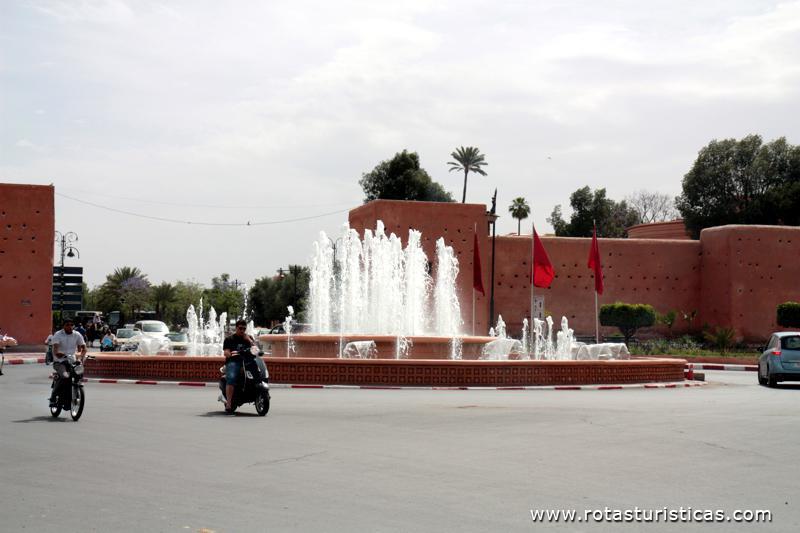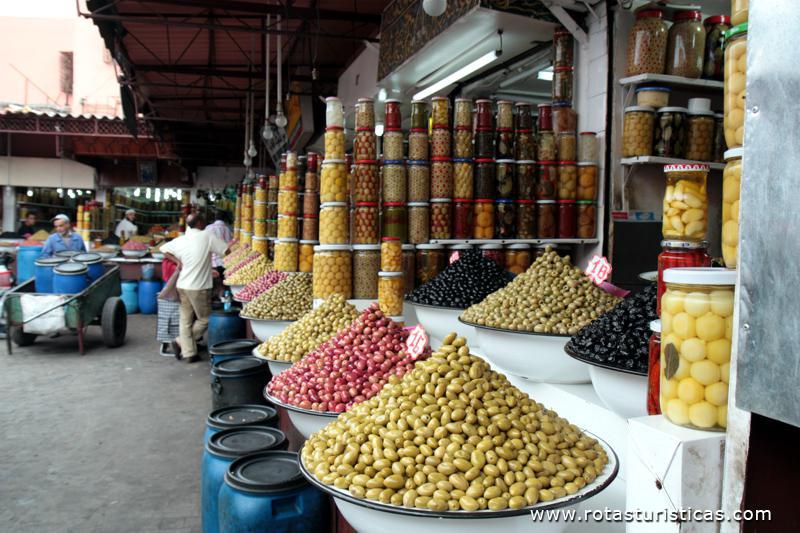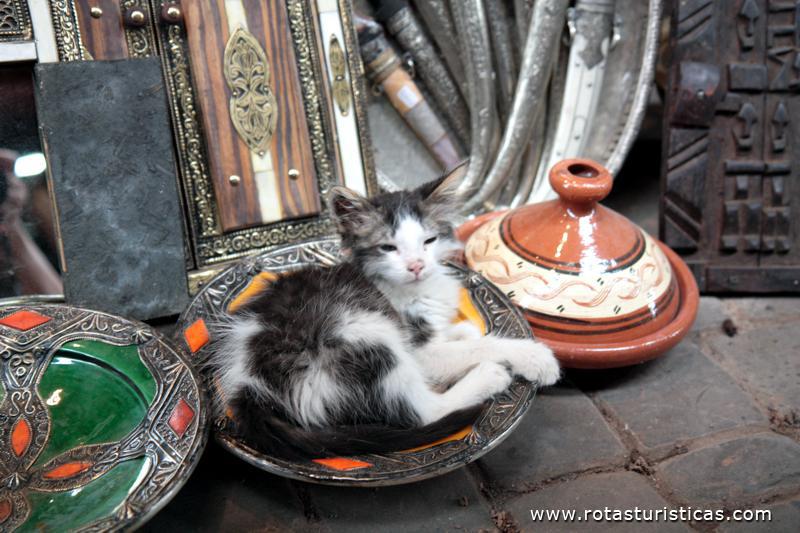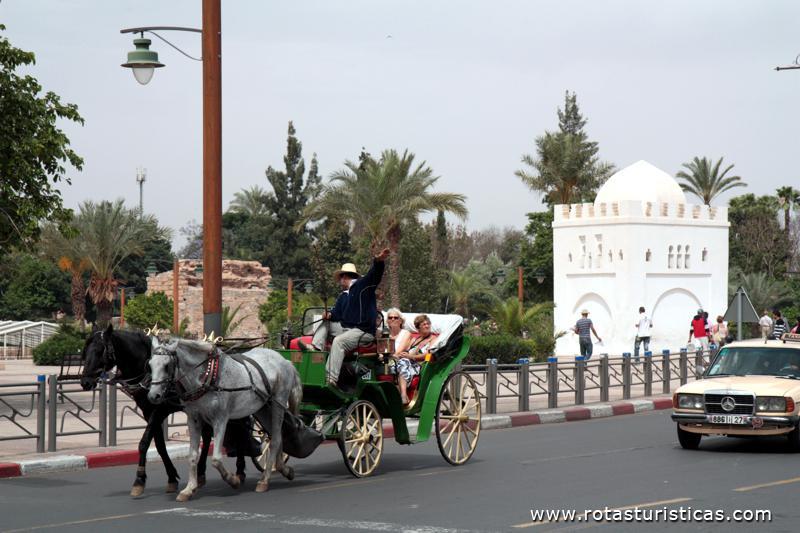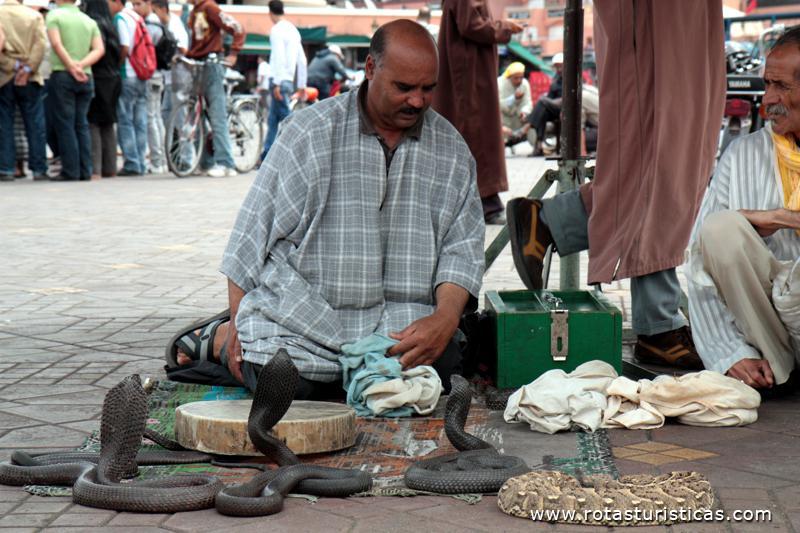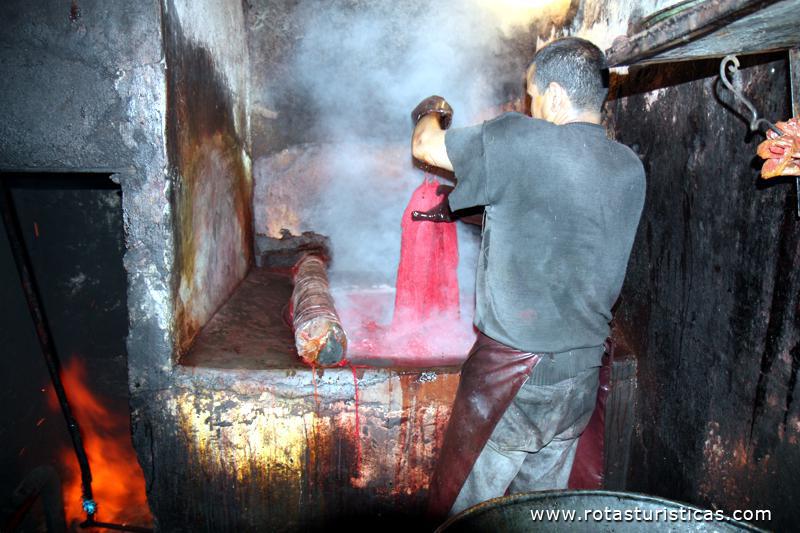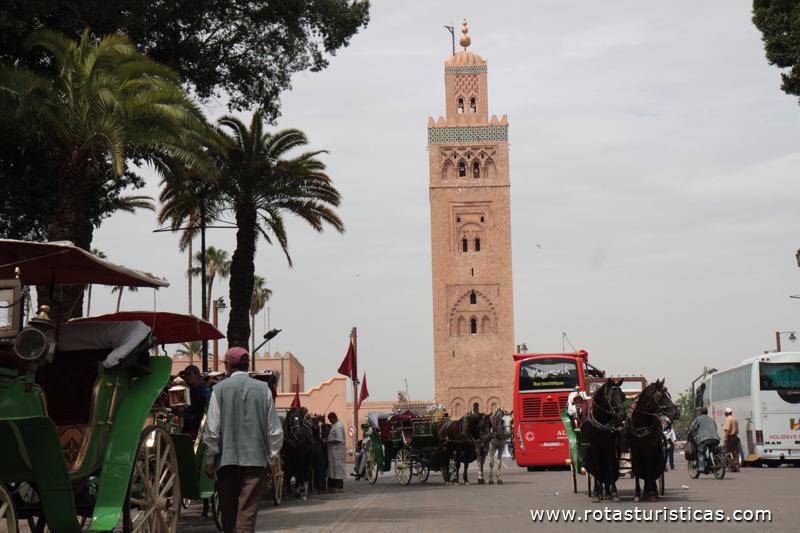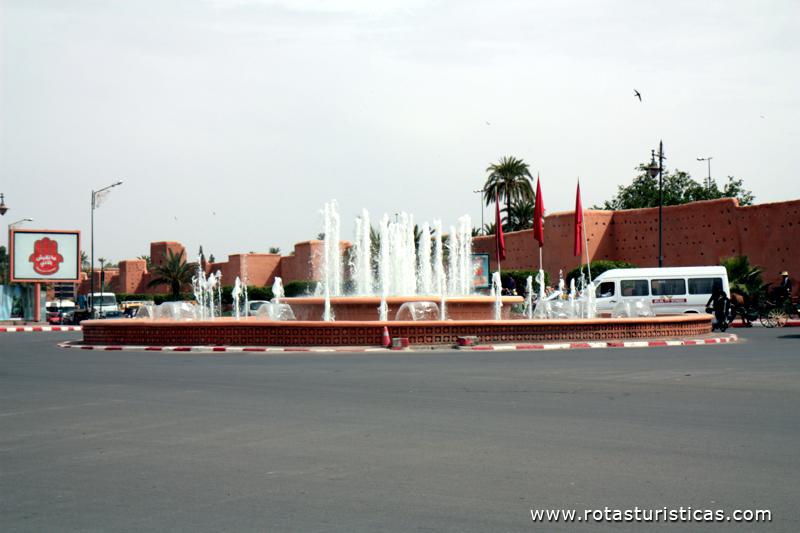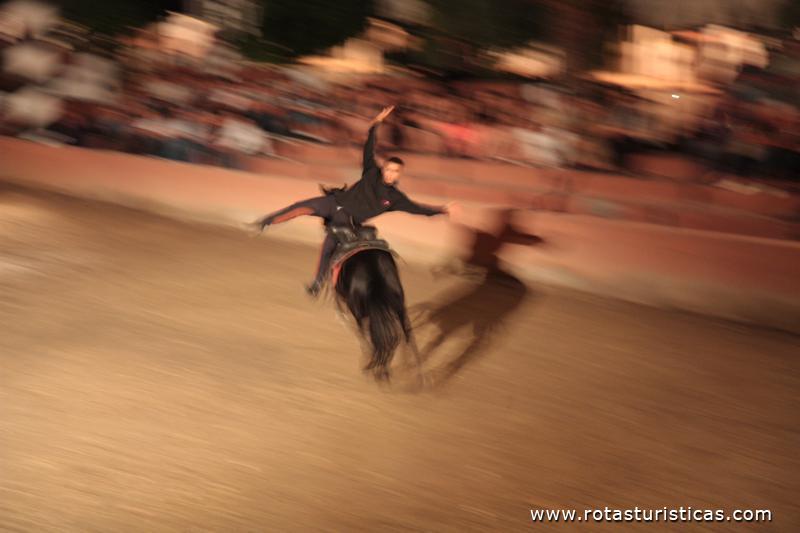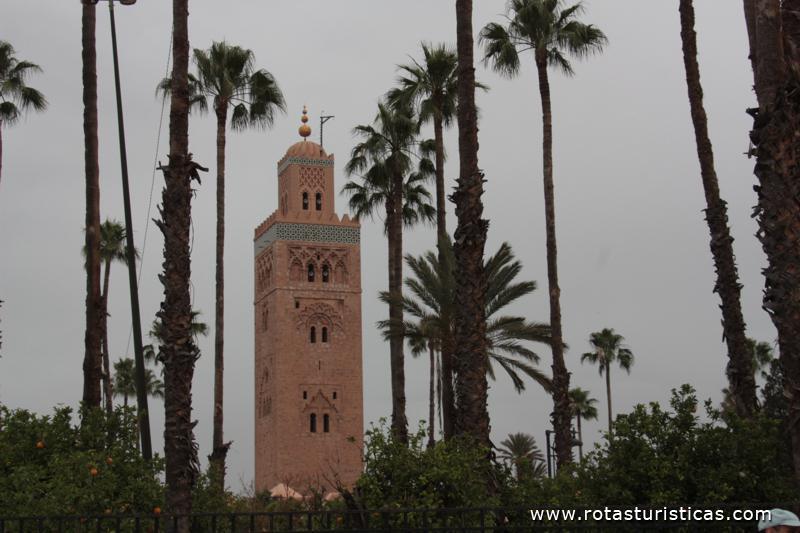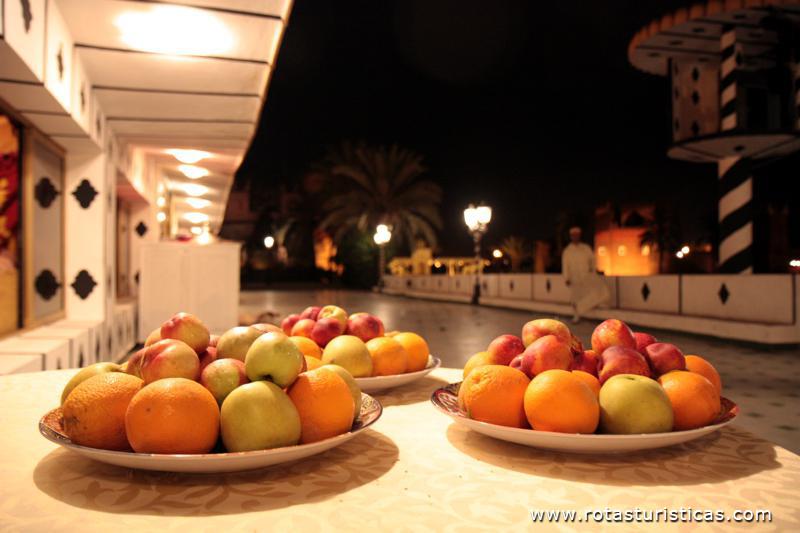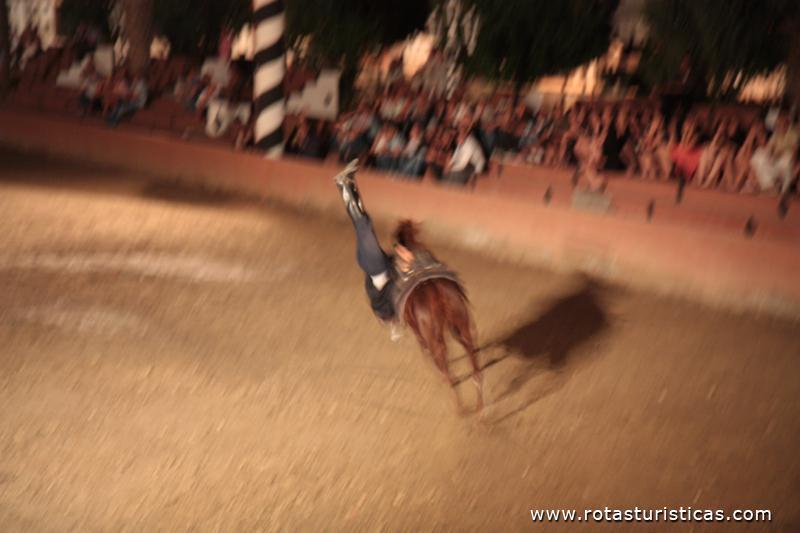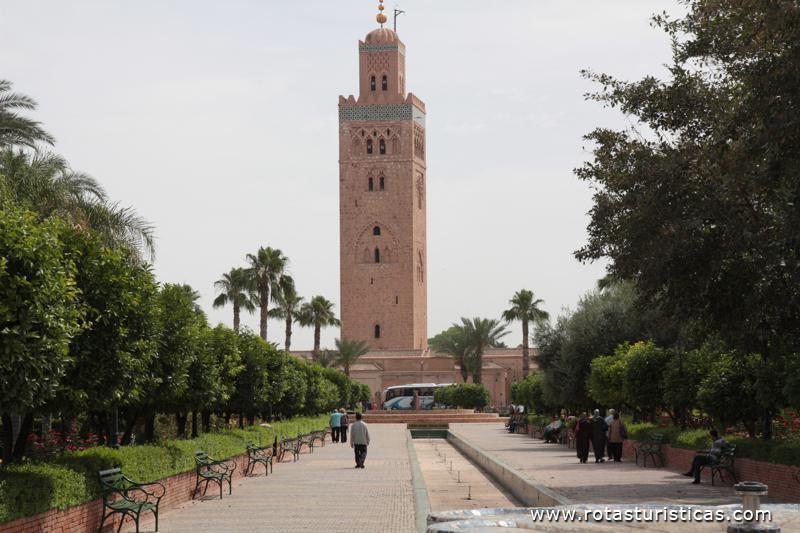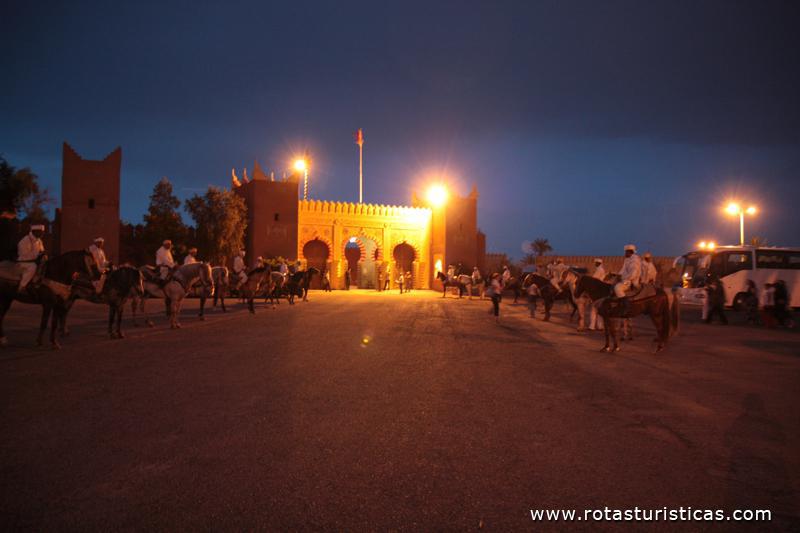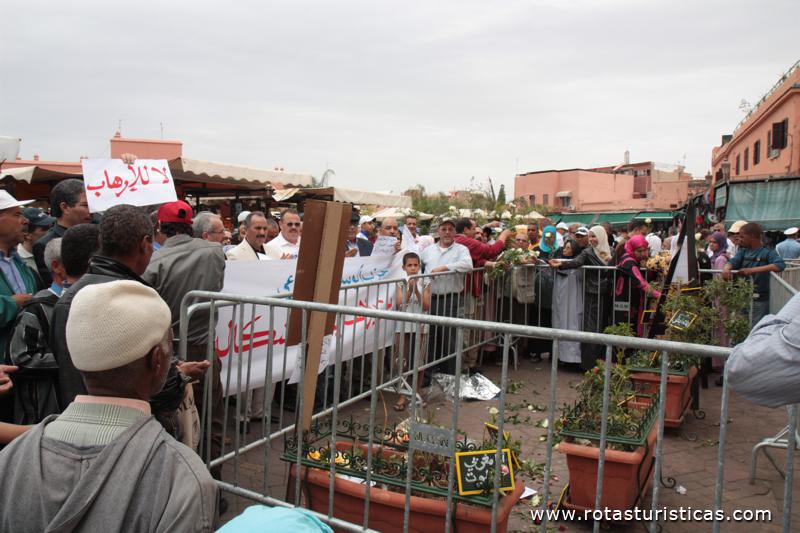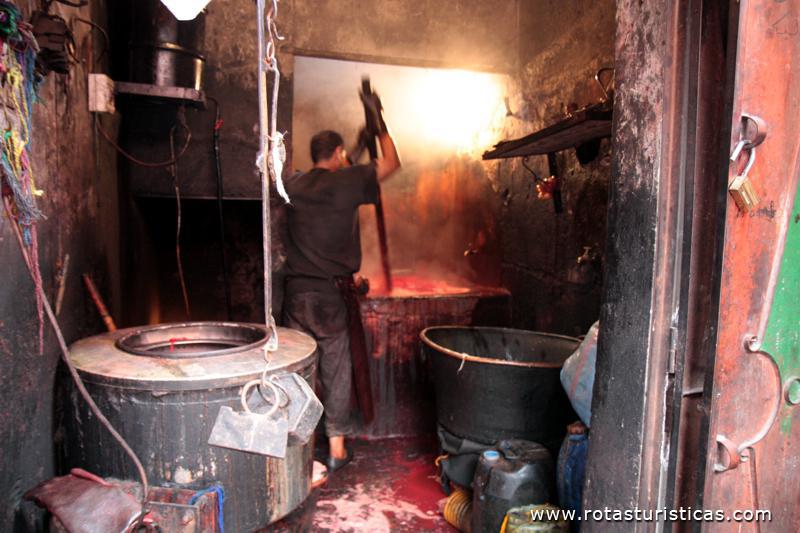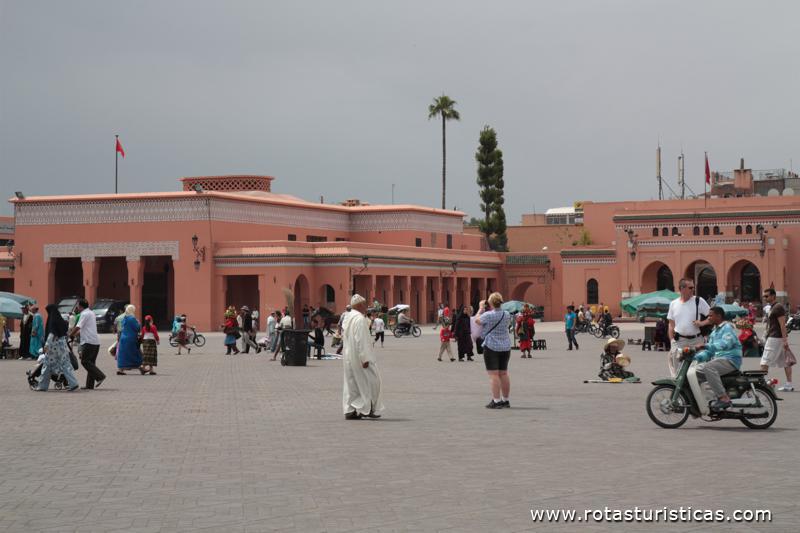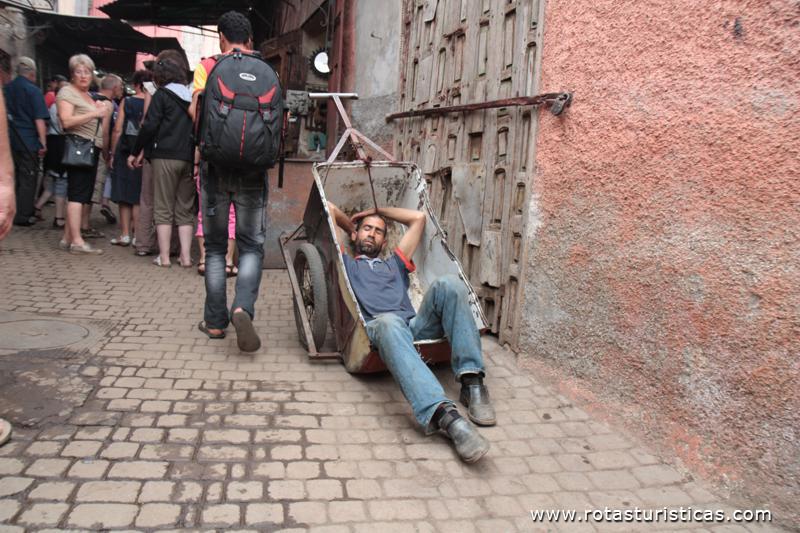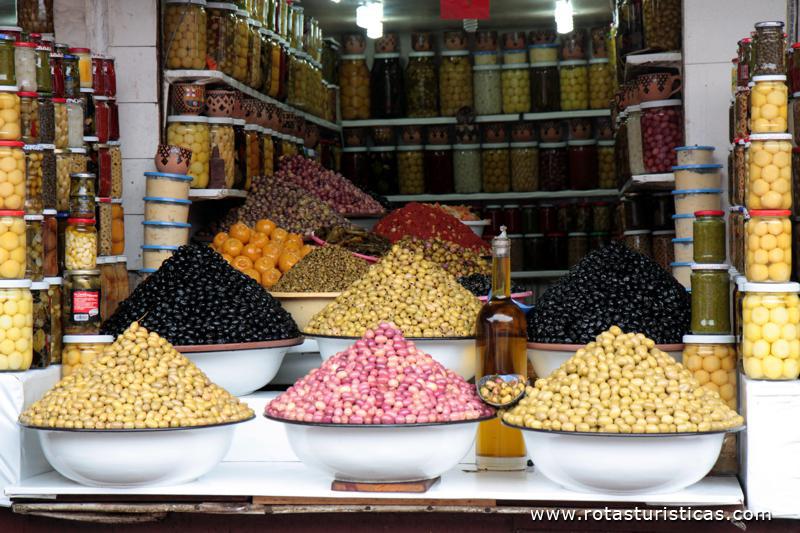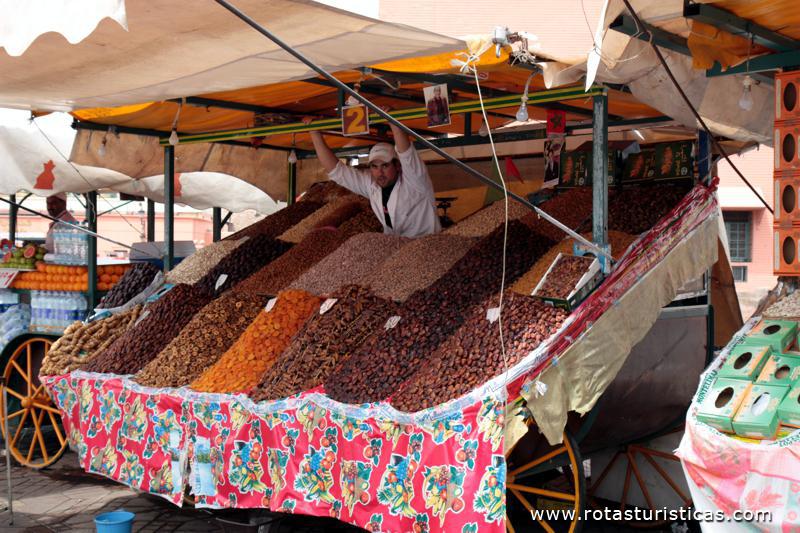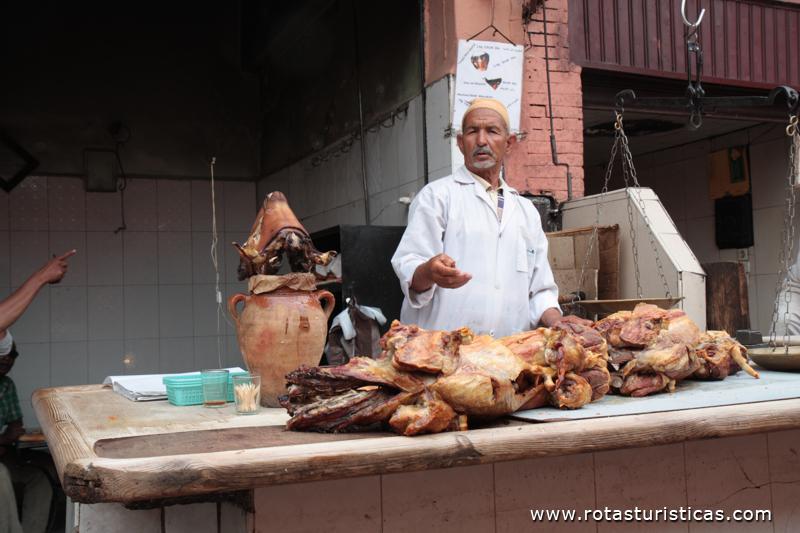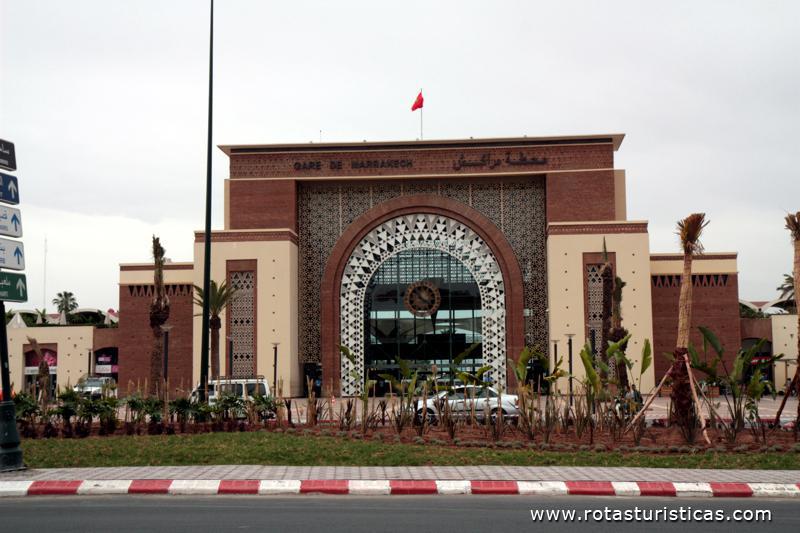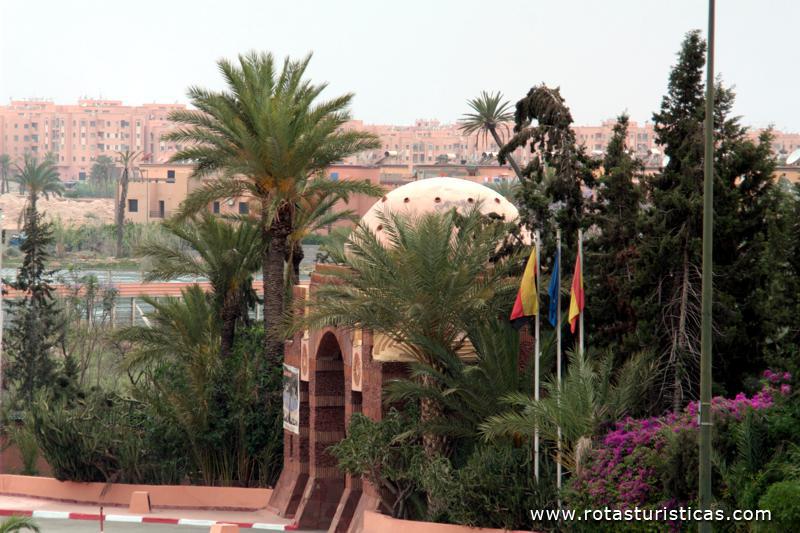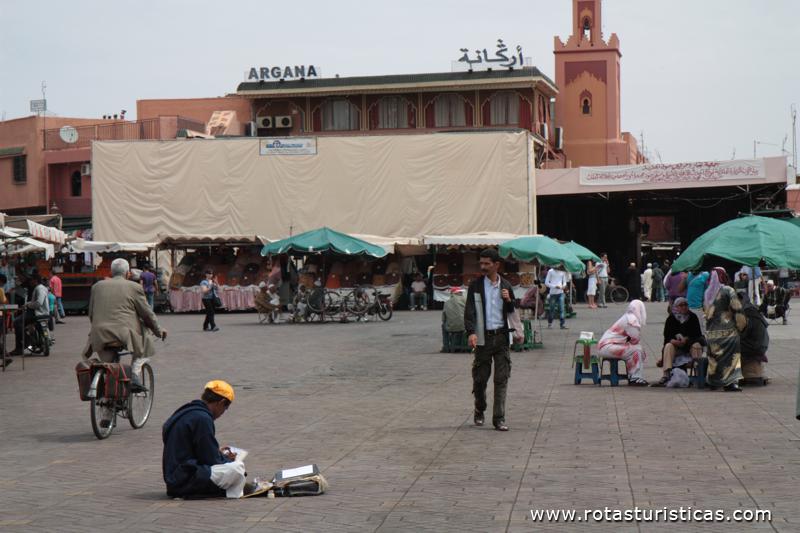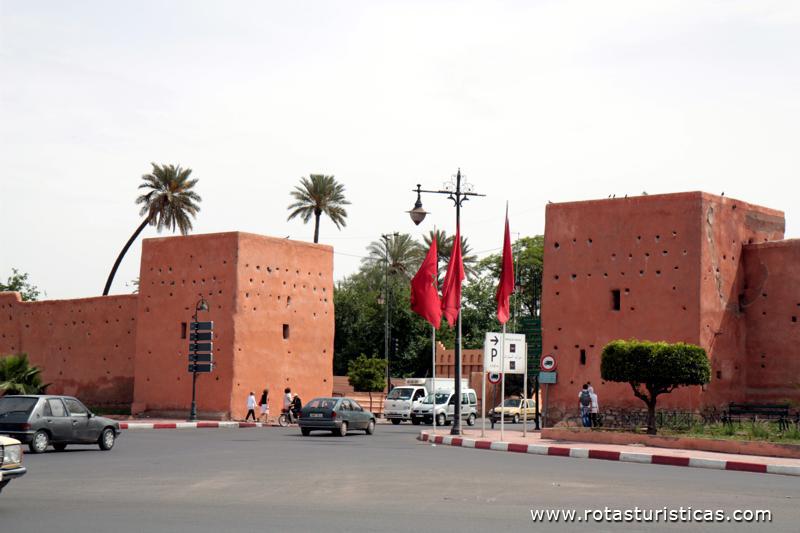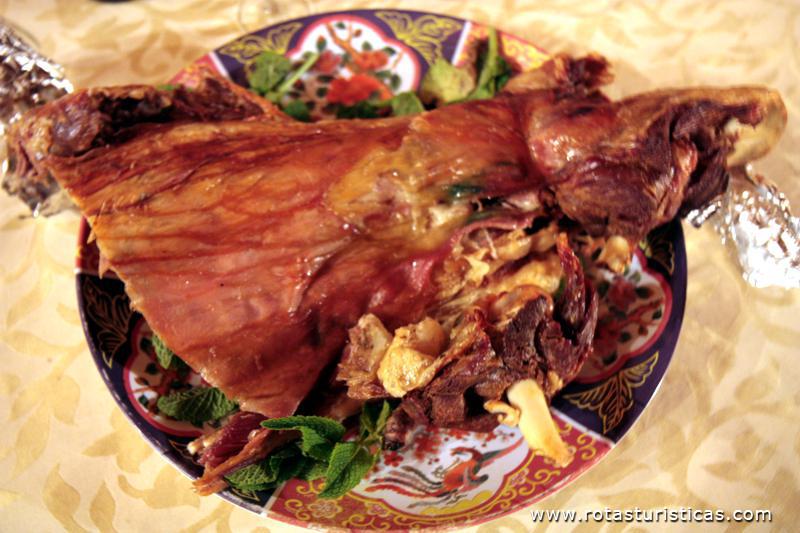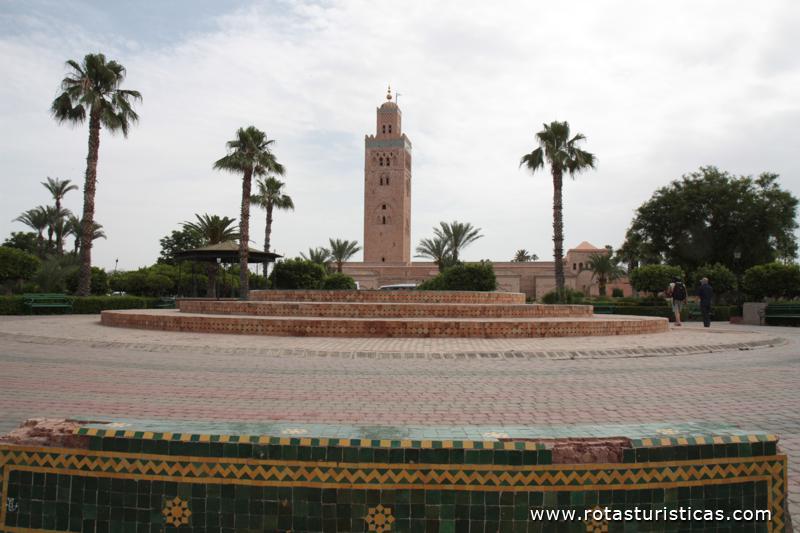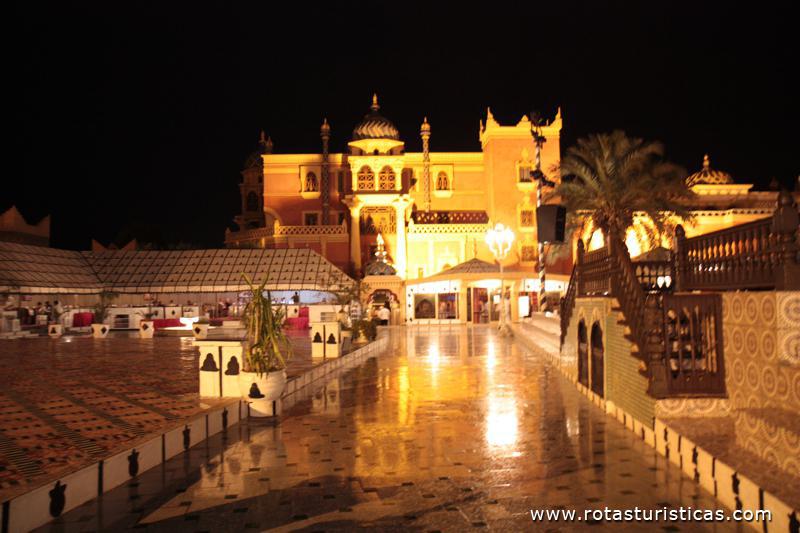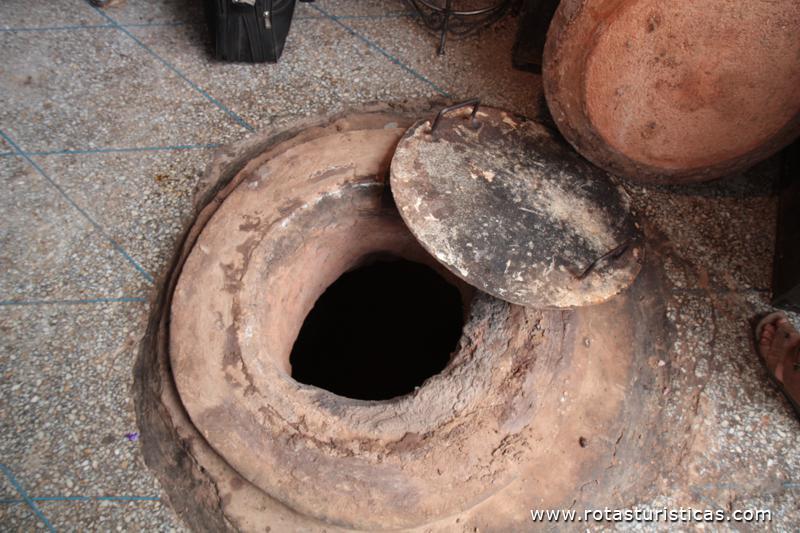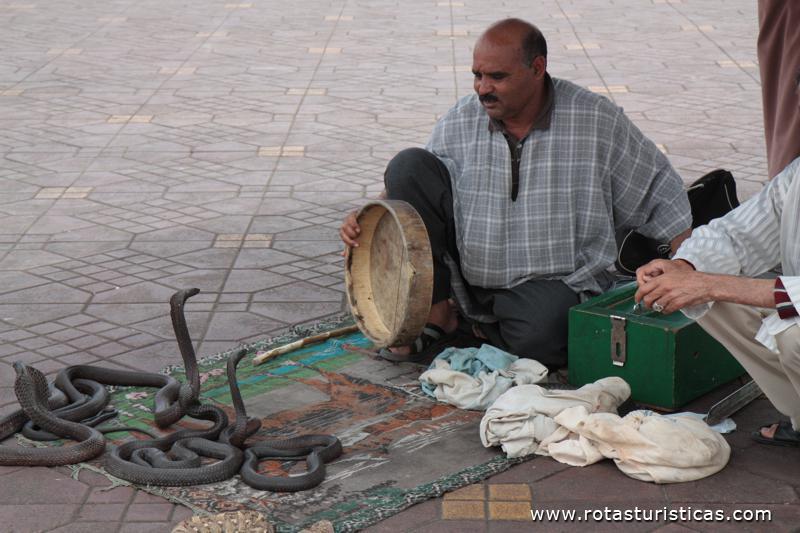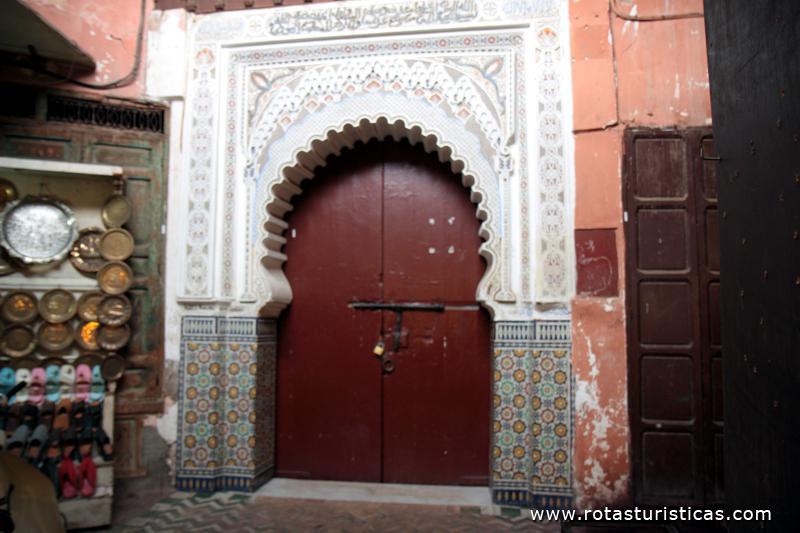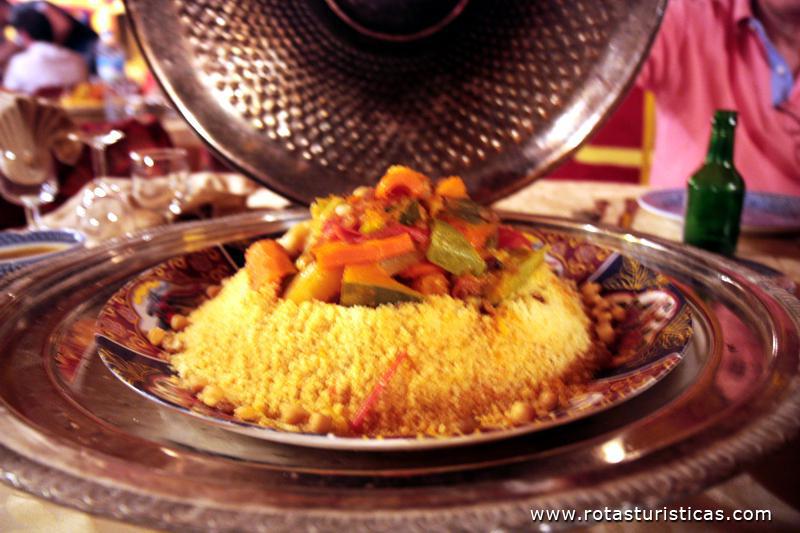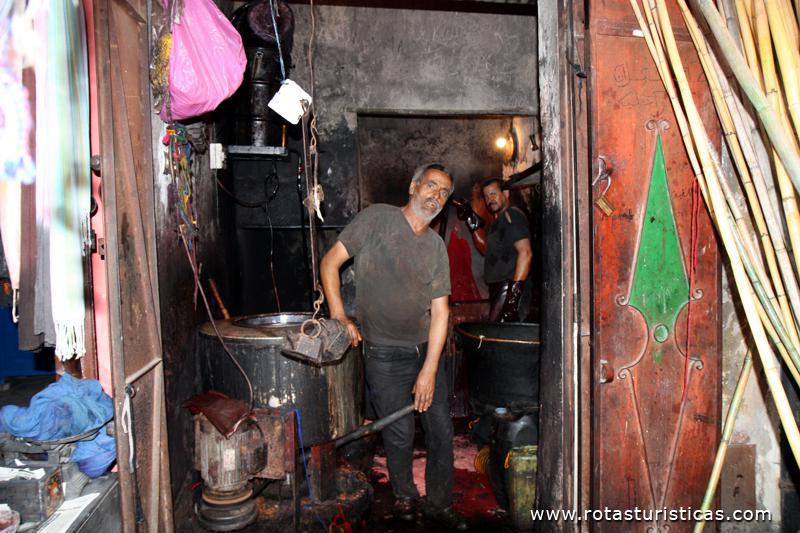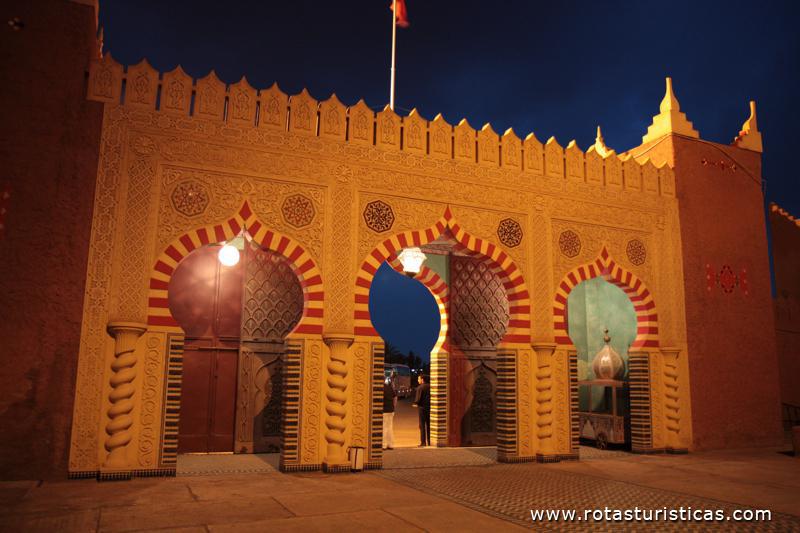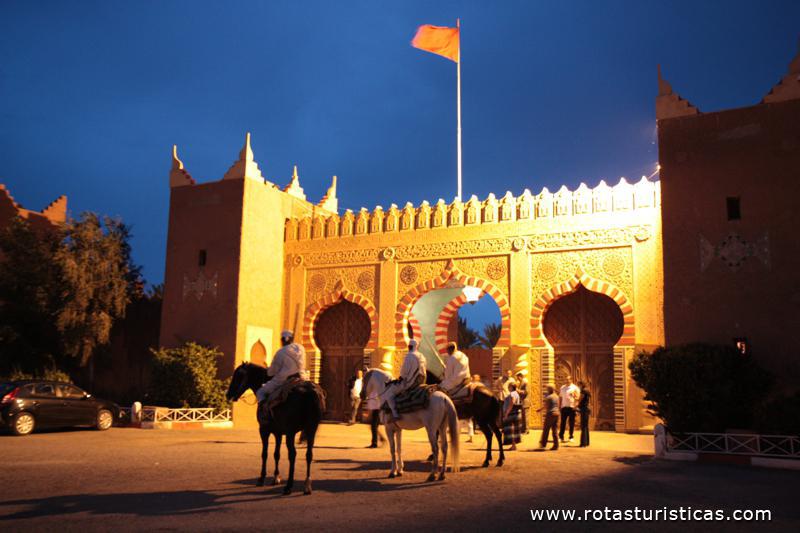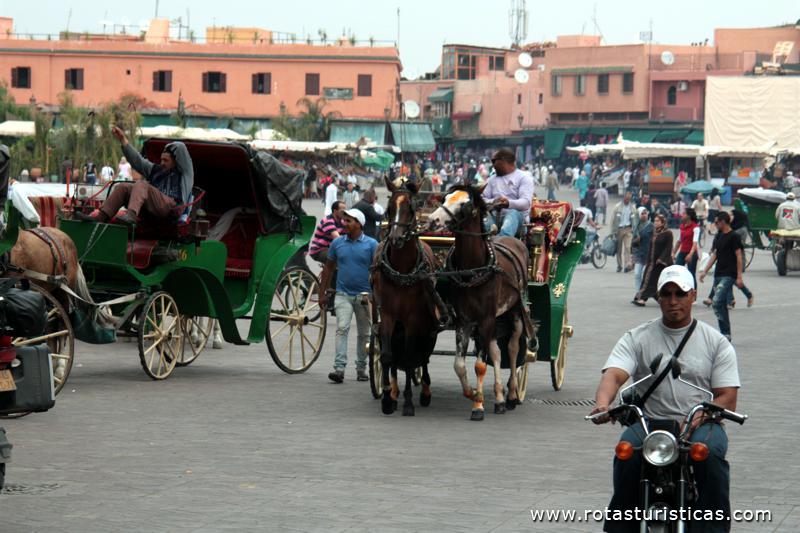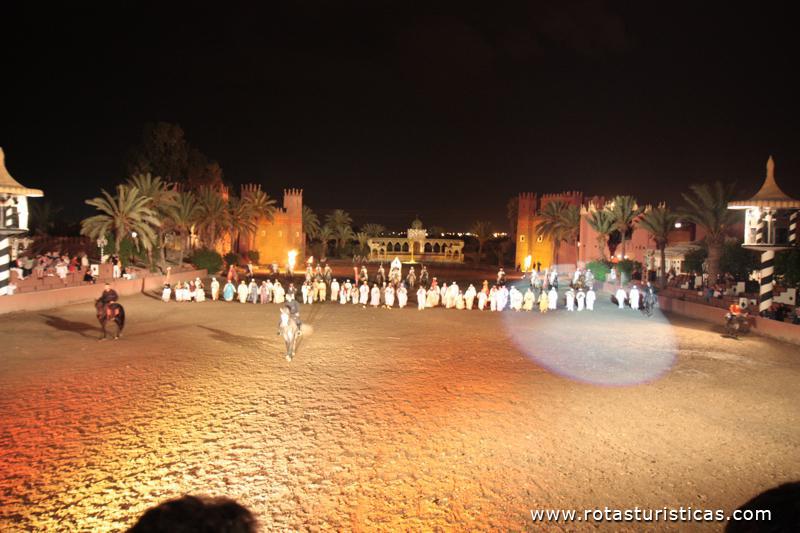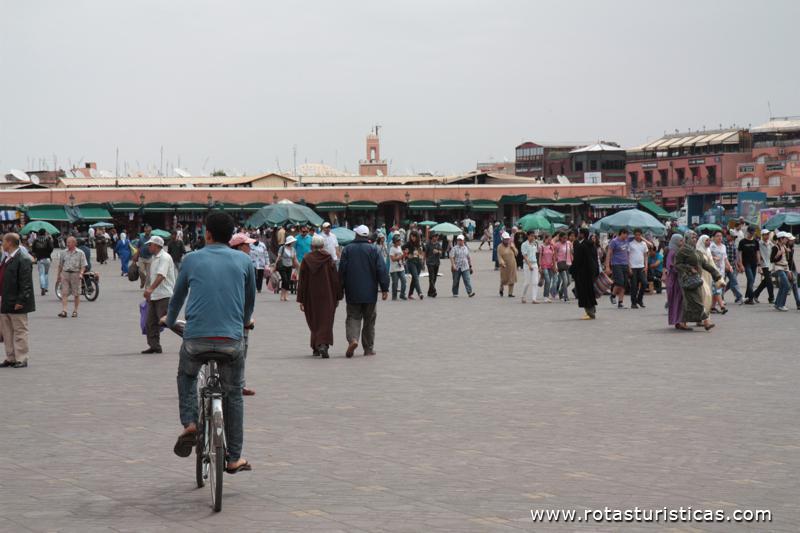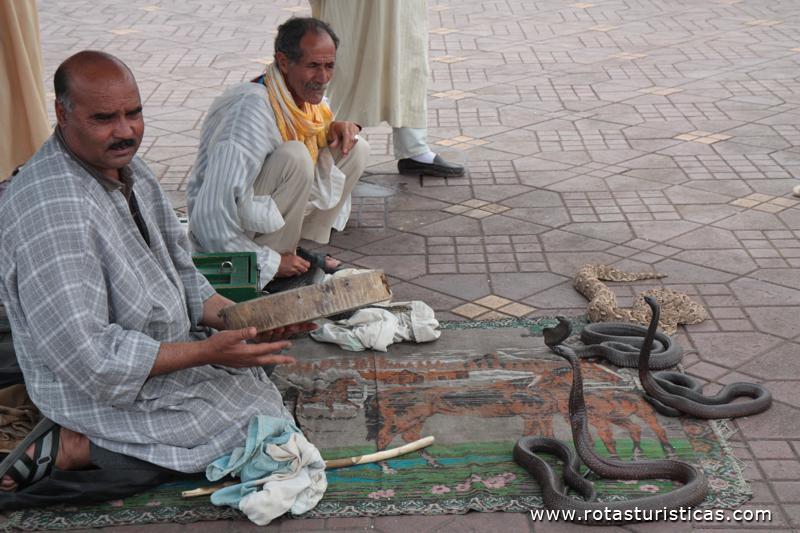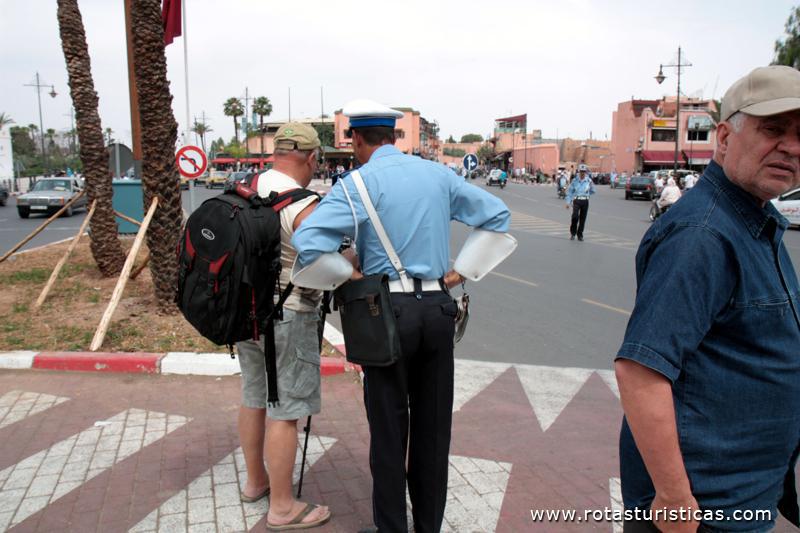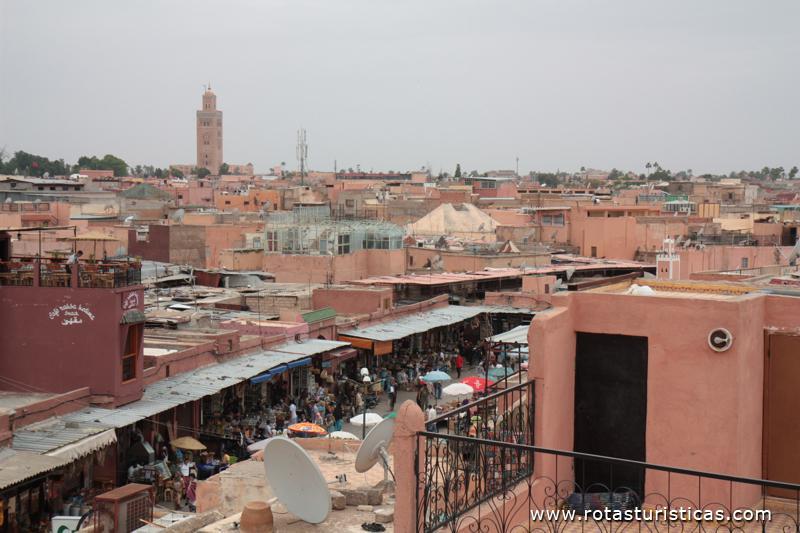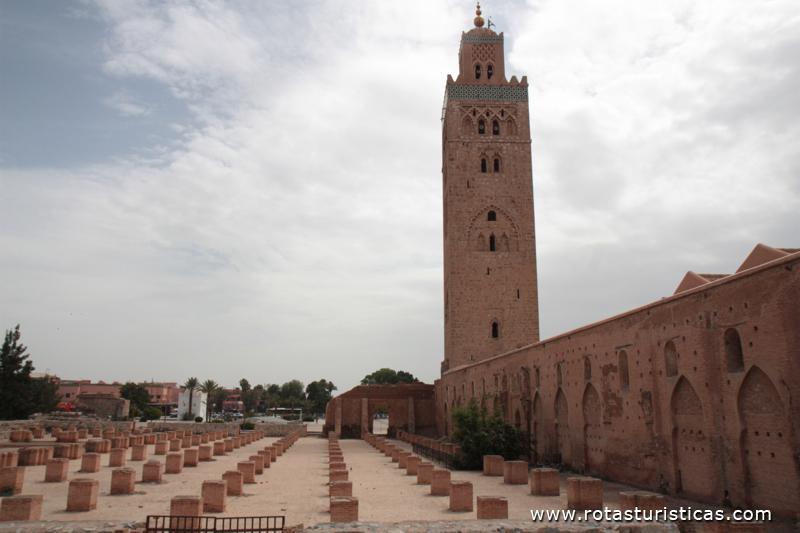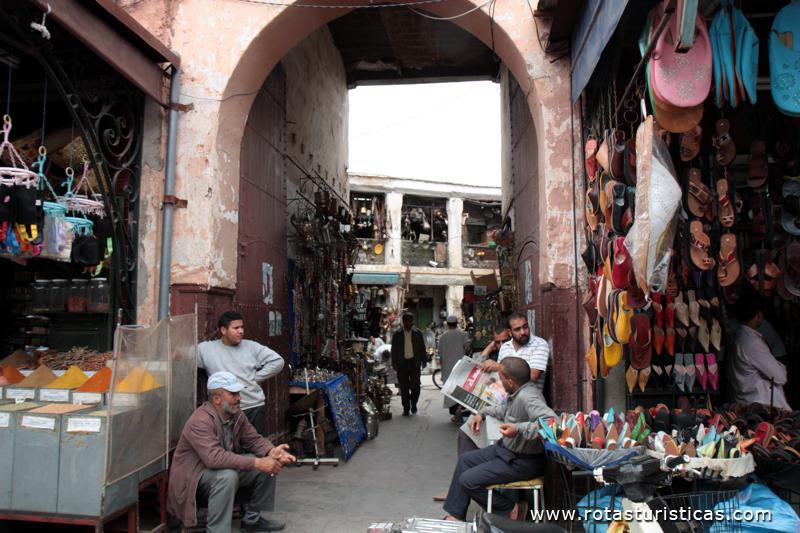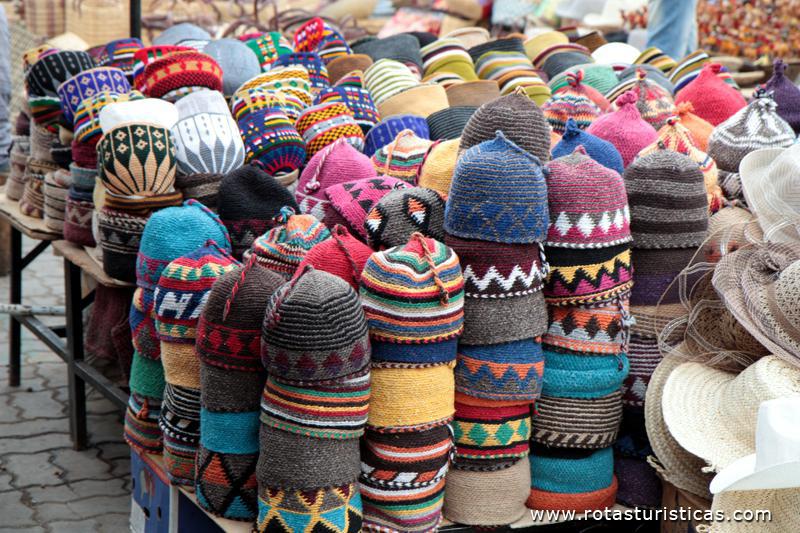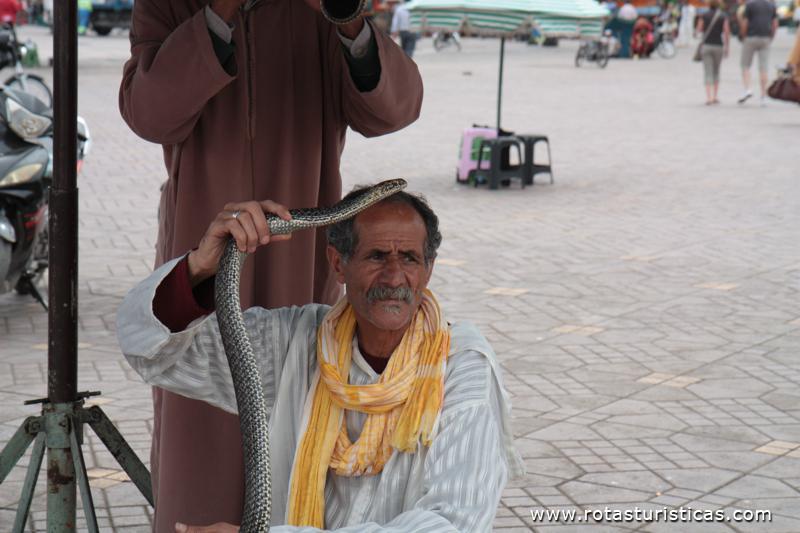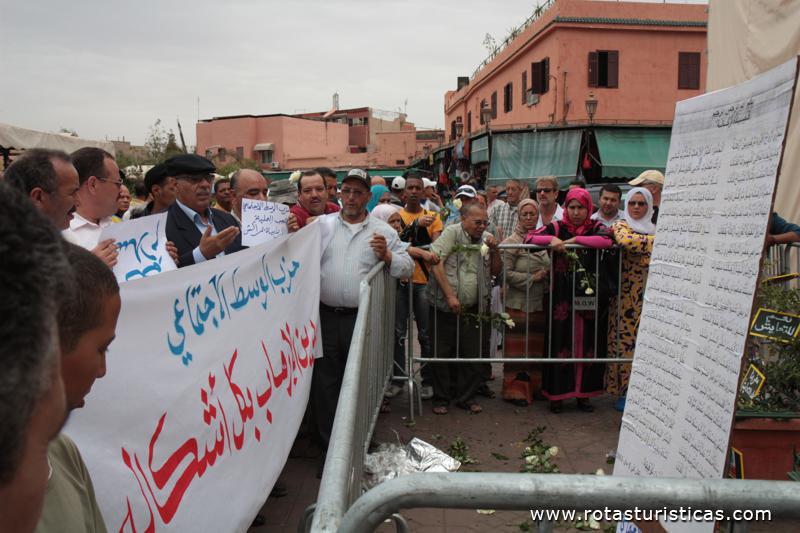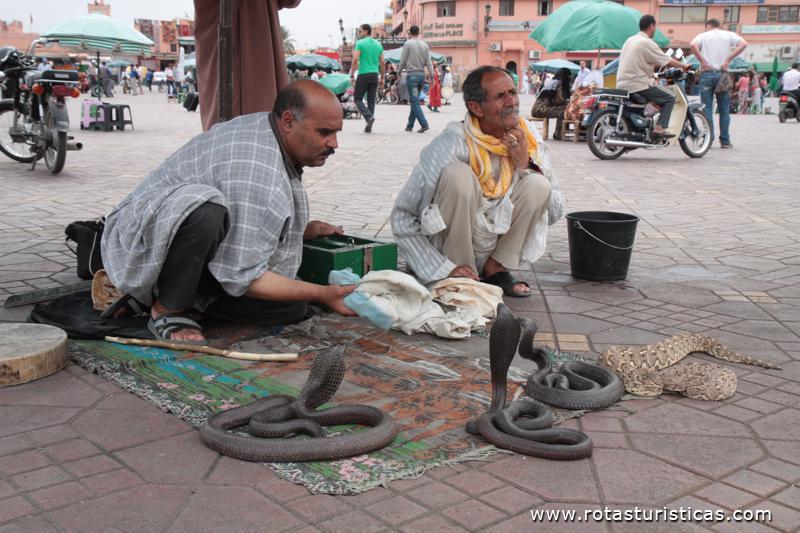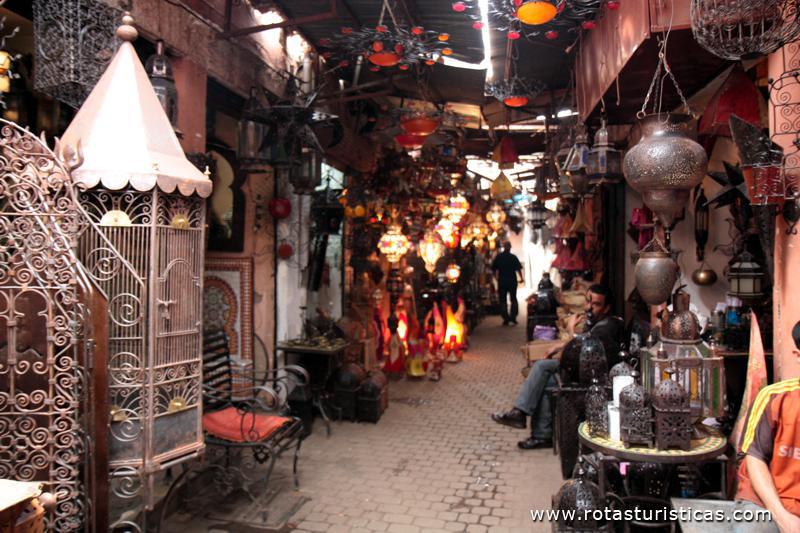Pictures of: Marrakesh, Morocco
Location map
Airports
Hotels and other Accommodation
What to visit
Where to Eat
Where to have fun
Consulates & Embassies
World Nomads
The Travel Insurance with the largest coverage

The Travel Insurance with the largest coverage

Marrakesh
Marrakech, Marrakesh or Marrakesh is a city in south-central Morocco, situated near the northern foothills of the High Atlas range. Known as the "red city", the "pearl of the south" or the "southern door", it is the capital of the homonymous municipality, which is part of the Marrakech-Tensift-Al Haouz region.
It is the fourth largest city in the country, after Casablanca, Fez and Rabat. It is located 580 km southwest of Tangier, 327 km southwest of Rabat, 240 km southwest of Casablanca and 246 km northeast of Agadir. It is probably the most important of the so-called four imperial cities of Morocco (the others are Fez, Meknès and Rabat) and the one that attracts more tourists.
It is the fourth largest city in the country, after Casablanca, Fez and Rabat. It is located 580 km southwest of Tangier, 327 km southwest of Rabat, 240 km southwest of Casablanca and 246 km northeast of Agadir. It is probably the most important of the so-called four imperial cities of Morocco (the others are Fez, Meknès and Rabat) and the one that attracts more tourists.
Tourism
Religious distances and customs, especially in times of conflict in the Middle East, are extremely fascinating and fearful to Western travelers who venture into the exotic Muslim world. Located in south-central Morocco, Marrakech is a great option to get to know the genuine Islamic culture with comfort and security.
At the crossroads between the Sahara and the Atlantic coast of Africa, the city is the most preserved of European influence over other northern sights, such as Casablanca, Tanger or the capital Rabat. Marrakech also has a good tourist infrastructure and warm climate for foreigners, as well as offering itineraries in the surroundings that range from a trip to the coast, a visit to the snowy peaks of the Atlas or sleeping in the desert.
Founded in the 11th century, Marrakech had times of apogee, like the Moorish occupation in the Iberian Peninsula, alternated by wars and invasions. Until the 1950s, Morocco was influenced by Spanish and mainly French settlers, who still dominate the country culturally and economically. On the other hand, a striking feature of Marrakesh is its connection with the Berber tribes, as the nomadic peoples of the interior are known.
The times of Muslim glory are very present in the gardens, beautiful palaces and mosques, like the Kutubiyya. Its immense minaret can be seen a few miles away, while just below there is a huge garden with orange and palm trees. Unfortunately, access to temples is forbidden to non-Muslims. The only option to visit the tourist is the great mosque of Casablanca.
One of the most fascinating features of Muslim culture is the close relationship between commerce and religion. The Prophet Muhammad, founder of Islam in the 7th century, was a prosperous merchant in his time, which strengthens the people's vocation to trade. In Marrakech, it is difficult to know the boundaries between faith and business, two very frequent characteristics within the Medina, the old center, surrounded by a great wall, that was used in the past for the defense of the city.
On the other side of the Kutubiyya Mosque is the Djemaa El-Fna square. It is from there that the great central market, the souk, spreads. The first sight impresses. Thousands of men in typical clothes and women veiled from head to toe; musicians with monkeys, snake charmers, date sellers and wagons hurrying by. Moroccans are very fond of tourists, but there are few beggars. Everyone wants to offer something. Although it scares a little, the people are very cordial and assaults are unusual. Of course, always keep an eye on your backpack and not expose valuables.
The souk is lost by a tangle of alleys where everything is sold. The smell of spices dominates the air and the boutiques offer dried fruits to foodstuffs, passing through carpets, crystals, fine ceramics and jewels. In some parts of the market one can see artisans working with metallurgy or painting. Lose yourself around easy and fun.
With one million inhabitants, Marrakesh is one of the most emblematic metropolis of the Maghreb, which comprises the whole region of Muslim cultural domination in North Africa. Another striking feature of the city is its frantic traffic of motorcycles, old cars and carts, which obliges the visitor to pay close attention to walking on the streets and even on the sidewalks. On the other hand, it offers quiet refuges in squares and parks, where Moroccans, very talkative, meet to bring the matter up.
There is also an elegant new area, outside the Medina, the district of Guéliz. It is home to luxury hotels, new commercial buildings, trendy bars and restaurants, where contemporary cuisine, especially of French influence, stands out. Marrakech also attracts five star tourism with huge resorts and golf courses.
Besides the urban area, the privileged position of its urban nucleus allows to reach without difficulty to several attractions in the surroundings.
At the crossroads between the Sahara and the Atlantic coast of Africa, the city is the most preserved of European influence over other northern sights, such as Casablanca, Tanger or the capital Rabat. Marrakech also has a good tourist infrastructure and warm climate for foreigners, as well as offering itineraries in the surroundings that range from a trip to the coast, a visit to the snowy peaks of the Atlas or sleeping in the desert.
Founded in the 11th century, Marrakech had times of apogee, like the Moorish occupation in the Iberian Peninsula, alternated by wars and invasions. Until the 1950s, Morocco was influenced by Spanish and mainly French settlers, who still dominate the country culturally and economically. On the other hand, a striking feature of Marrakesh is its connection with the Berber tribes, as the nomadic peoples of the interior are known.
The times of Muslim glory are very present in the gardens, beautiful palaces and mosques, like the Kutubiyya. Its immense minaret can be seen a few miles away, while just below there is a huge garden with orange and palm trees. Unfortunately, access to temples is forbidden to non-Muslims. The only option to visit the tourist is the great mosque of Casablanca.
One of the most fascinating features of Muslim culture is the close relationship between commerce and religion. The Prophet Muhammad, founder of Islam in the 7th century, was a prosperous merchant in his time, which strengthens the people's vocation to trade. In Marrakech, it is difficult to know the boundaries between faith and business, two very frequent characteristics within the Medina, the old center, surrounded by a great wall, that was used in the past for the defense of the city.
On the other side of the Kutubiyya Mosque is the Djemaa El-Fna square. It is from there that the great central market, the souk, spreads. The first sight impresses. Thousands of men in typical clothes and women veiled from head to toe; musicians with monkeys, snake charmers, date sellers and wagons hurrying by. Moroccans are very fond of tourists, but there are few beggars. Everyone wants to offer something. Although it scares a little, the people are very cordial and assaults are unusual. Of course, always keep an eye on your backpack and not expose valuables.
The souk is lost by a tangle of alleys where everything is sold. The smell of spices dominates the air and the boutiques offer dried fruits to foodstuffs, passing through carpets, crystals, fine ceramics and jewels. In some parts of the market one can see artisans working with metallurgy or painting. Lose yourself around easy and fun.
With one million inhabitants, Marrakesh is one of the most emblematic metropolis of the Maghreb, which comprises the whole region of Muslim cultural domination in North Africa. Another striking feature of the city is its frantic traffic of motorcycles, old cars and carts, which obliges the visitor to pay close attention to walking on the streets and even on the sidewalks. On the other hand, it offers quiet refuges in squares and parks, where Moroccans, very talkative, meet to bring the matter up.
There is also an elegant new area, outside the Medina, the district of Guéliz. It is home to luxury hotels, new commercial buildings, trendy bars and restaurants, where contemporary cuisine, especially of French influence, stands out. Marrakech also attracts five star tourism with huge resorts and golf courses.
Besides the urban area, the privileged position of its urban nucleus allows to reach without difficulty to several attractions in the surroundings.
Gastronomy
Before venturing into the exotic gastronomic world of Marrakesh, it is worth remembering that the cuisine of the Moroccan people is heavily influenced by their religious beliefs. That is, being an Islamic country, most restaurants do not serve alcohol or pork, since they are prohibited. But during your stay in Marrakech you will not miss them.
You can find great dishes in the street food stalls, for example in the Jamaa El Fna square. Do not be afraid to eat in these stalls, as the locals do, since these are controlled by the Moroccan government to ensure their quality.
However, you should avoid drinking tap water. Although the locals drink it without problems, it can be indigestible for foreigners. Choose bottled water, which you can find in markets, kiosks and restaurants, and check that the lid has not been opened, as it is customary for Moroccans to fill the bottles with tap water. You should also avoid ice in drinks.
One of the typical dishes associated with the Moroccan people are the couscous, and in Marrakech you will have many opportunities to experience them. The Moroccan specialty is the couscous saykout, cooked with beaten milk, which constitutes a fresh dish, excellent for hot summer days. Harira is the traditional Moroccan soup. It is a delicious broth based on flour and vegetables like lentils, grain, tomato, onion and rice. He usually also has scrambled eggs and small pieces of meat, as well as some spices. During the month of Ramadan, this is the plate with which Muslims break their fast at dinner. It is also prepared at special heights, such as the morning after the wedding night.
Fried eggplants and lamb's head are another of the tasty Moroccan specialties that you can try in Marrakesh. Lamb roasted on the fire is called méchoui.
Tajine is a specialty consisting of lamb, beef or fish, cooked in a clay pot and accompanied with vegetables, almonds and plums, and wrapped in cinnamon or saffron.
Kefta is a kind of meatballs, made with minced beef or lamb, mixed with various spices. It can be served in kebab (kebabs) and is one of the main elements of Moroccan cuisine.
The touajen is a stew of lamb or chicken, in pickled. It can also be made with fish, and then it is called hout. Another popular dish of stewed beef, in this case chicken, is the djaja mahamara. In this case, the chicken is accompanied with almonds, raisins and semolina. Chicken, spiced with spices like cinnamon, is also the main ingredient in the bastilla filling, a sweet puff pastry.
If you pass early in the morning in the Koutoubia area, you may find vendors frying riifa, a kind of Moroccan pancakes. Try it! Among the drinks, the natural juices that sellers make in the street stalls, and the teas stand out. One of the most popular is ginseng tea with cinnamon and ginger.
You can find great dishes in the street food stalls, for example in the Jamaa El Fna square. Do not be afraid to eat in these stalls, as the locals do, since these are controlled by the Moroccan government to ensure their quality.
However, you should avoid drinking tap water. Although the locals drink it without problems, it can be indigestible for foreigners. Choose bottled water, which you can find in markets, kiosks and restaurants, and check that the lid has not been opened, as it is customary for Moroccans to fill the bottles with tap water. You should also avoid ice in drinks.
One of the typical dishes associated with the Moroccan people are the couscous, and in Marrakech you will have many opportunities to experience them. The Moroccan specialty is the couscous saykout, cooked with beaten milk, which constitutes a fresh dish, excellent for hot summer days. Harira is the traditional Moroccan soup. It is a delicious broth based on flour and vegetables like lentils, grain, tomato, onion and rice. He usually also has scrambled eggs and small pieces of meat, as well as some spices. During the month of Ramadan, this is the plate with which Muslims break their fast at dinner. It is also prepared at special heights, such as the morning after the wedding night.
Fried eggplants and lamb's head are another of the tasty Moroccan specialties that you can try in Marrakesh. Lamb roasted on the fire is called méchoui.
Tajine is a specialty consisting of lamb, beef or fish, cooked in a clay pot and accompanied with vegetables, almonds and plums, and wrapped in cinnamon or saffron.
Kefta is a kind of meatballs, made with minced beef or lamb, mixed with various spices. It can be served in kebab (kebabs) and is one of the main elements of Moroccan cuisine.
The touajen is a stew of lamb or chicken, in pickled. It can also be made with fish, and then it is called hout. Another popular dish of stewed beef, in this case chicken, is the djaja mahamara. In this case, the chicken is accompanied with almonds, raisins and semolina. Chicken, spiced with spices like cinnamon, is also the main ingredient in the bastilla filling, a sweet puff pastry.
If you pass early in the morning in the Koutoubia area, you may find vendors frying riifa, a kind of Moroccan pancakes. Try it! Among the drinks, the natural juices that sellers make in the street stalls, and the teas stand out. One of the most popular is ginseng tea with cinnamon and ginger.
Weather
The climate is dry Mediterranean. The average annual temperature is 19.2 ° C and ranges from 11.6 ° C in January to 27.6 ° C in July.
The precipitations are of 247 mm annual, concentrated from October to May, often of torrential form.
The precipitations are of 247 mm annual, concentrated from October to May, often of torrential form.
Other tourist destinations in:
Morocco
Morocco
Other world tourist destinations
Why to book with BOOK HOTEL MADEIRA
The best prices
Our partnerships with the world´s largest operators offer research on the best market prices.
More options
At Rotas Turisticos you can book the hotel, buy the air ticket, book the transfer from the airport to the hotel and vice versa, book the local excursions, rent the car, take travel insurance and consult the places to visit and where to go.
Holiday Tips & Destinations
Hundreds of holiday destinations with all the options that allow you to easily choose the destination that best suits your dream vacation.
BOOK HOTEL MADEIRA
Links

